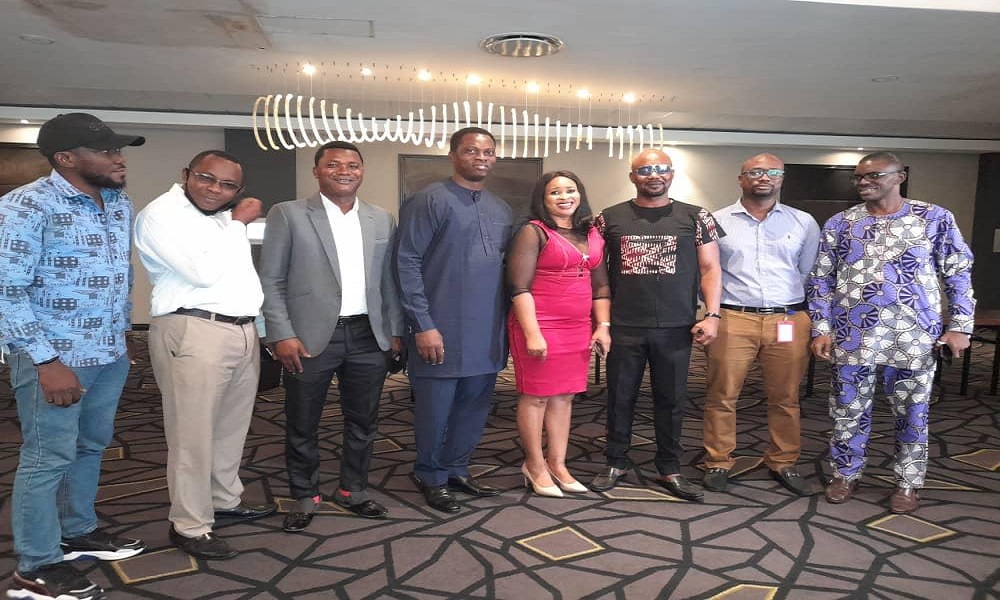Policymakers at both the federal and state levels in Nigeria have been called upon to put in more efforts that would result in Nigerians having access to ubiquitous Internet.
This call was made by experts who converged on Monday at a conference in Lagos, commemorating the 2021 World Wide Web Day organized by the Centre for Cyber Awareness and Development (CECAD).
The experts argued that ubiquitous and affordable Internet will easily lead to more Nigerians lashing on to the digital economy being pursued and championed by the federal ministry of communications and digital economy.
Engr. Ikechukwu Nnamani, President of the Association of Telecommunications Companies of Nigeria (ATCON), insisted that Nigeria has made a commendable impact in the growth of internet-based innovations.
He posited that a country like Nigeria, with over 154.3 million basic Internet users must do everything within its resources to key into the digital economy.
“The point is the Internet and its related technologies play a major role in the growth and performance of a digital economy, which is the trend all over the world with people doing online buying and selling, banking transactions, transportation, improving education and developing societies,” he said.

Engr. Nnamani, who is also the Chief Executive Officer of Medallion Communications Limited, an Interconnect clearinghouse and Data Centre operator added that the growth of the Internet has led to the development of digital technologies helping to transform the economy of the country in several ways.
He argued that what the government needs is to continue to build on the existing infrastructure and provide security for them.
Also speaking on the need to have a robust internet infrastructure to drive the digital economy, Ms. Erene Omijeh, Enterprise Sales Lead at Infobip Nigeria said the digital economy must be powered by structured solutions and services that enable businesses to build connected customer experiences across multiple communication channels.
She noted that some of the key challenges for businesses in the pursuit of today’s digital economy are customer reach and customer engagement, authentication and security and support and retention.
Omijeh assured that as a company that enables life-changing interactions for every human on earth, Infobip is already addressing that by creating seamless interactions between businesses, people and things.
’Our role in the digital economy pursuit is to build connected customer experiences across multiple communication channels with our customer engagement platform, which powers a broad range of solutions, messaging channels, and tools for advanced customer engagement, authentication, security, support, and retention,” she disclosed.
Meanwhile, Mr. Tony Ojobo, the President of the African ICT Foundation, while speaking on the ‘The Imperative of Digital Inclusion in the New African Digital Economy,’ noted that information is power, but lamented that in this part of the world, citizens, especially those in the rural areas lacked access to life-saving information.
He attributed this to a lack of access to the internet, leading to a large number of both urban and rural populations being unable to afford Digital/ Smart devices to be able to key into the digital economy.
“There can be no digital economy without affordable and accessible Internet in the country. Government should invest massively in Broadband services to address the cost of services, which may hinder the digital economy drive,” he said.
Ojobo opined that with pervasive broadband infrastructure across the country, the issue of out-of-school children can be addressed by leveraging online learning, which is aided by the Internet.
The Internet he said, is a Fundamental Human Right (FHR) and must be guaranteed for all, stressing that any attempt to infringe on this right will stifle innovation and creativity, which will hurt the African economy.
He also advised that ethical and responsible use of the internet is, however, necessary to maintain sanity, adding that citizens have the responsibility of ensuring that contents are truthful, responsible and contribute to the development of society.

The World Wide Web Day celebration was organized by the Centre for Cyber Awareness and Development (CECAD) to discuss the impact of the internet, the opportunities of emerging technologies for business, raising additional awareness and exploring the strategies of safety on the web for individuals and businesses, infrastructure companies and innovators.
“We have decided to join the rest of the world to celebrate the impact of the Internet on businesses and the government. Today’s conference provides a platform for sharing an organizational vision and strategic plan to drive the National ICT revolution and the digital space,” Dr. Bayero Agabi, National Coordinator of CECAD said in his welcome address.
He explained that World Wide Web Day is a global celebration dedicated to web browsing, online activity that brings a wealth of knowledge to the fingertips as well as a chance to celebrate the way the internet created an environment for collaboration and business growth, while also taking a deeper look into its evolution over the past three decades since its invention by Sir Tim Berners-Lee.
“Today’s event, being the first of its kind in Nigeria is meant to leverage the opportunities the World Wide Web presents, look at policies to grow the space and create a sane and secure Nigeria digital society. We are all expected to share our organizational vision and strategic plan to drive the national digital plan to grow a sustainable digital economy,” he added.
Among the dignitaries in attendance at the event, were the Director-General of the National Identity Management Commission (NIMC), Engr. Aliyu Aziz; Managing Director Galaxy Backbone Limited (GBB), Prof. Muhammed Bello Abubakar; President, Nigeria Computer Society (NCS), Prof. Adesina Sodiya; President of ATCON, Engr. Ikechukwu Nnamani; Former President NCS, Alhaji Ladi Oguneye; Chief Executives of IT companies and other relevant stakeholders.

